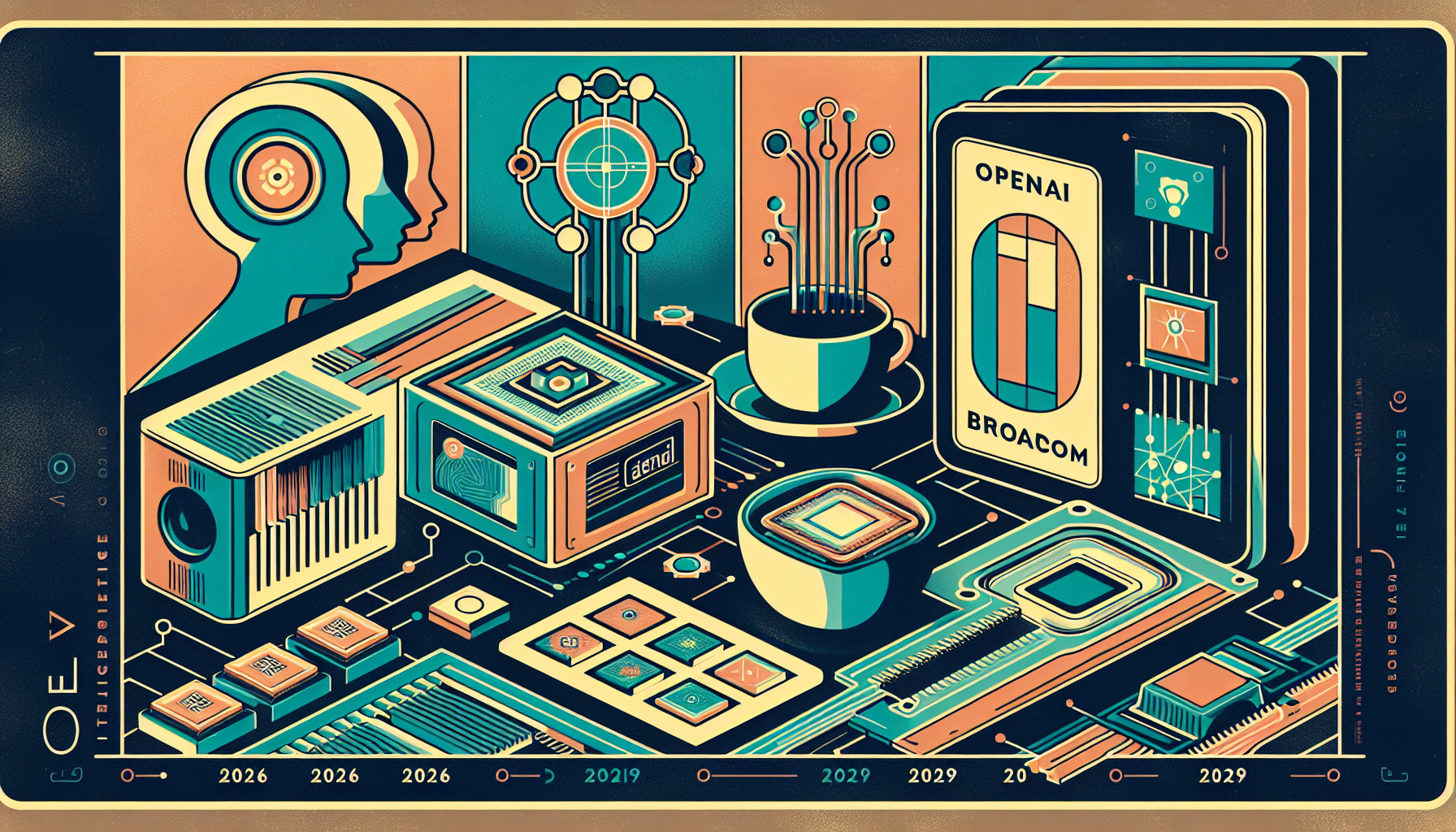OpenAI and Broadcom have joined forces in a groundbreaking alliance to design and build custom AI accelerator chips. Their shared goal is ambitious: a total chip capacity of 10 gigawatts, with deployment beginning in the second half of 2026 and completion set for the end of 2029.
Unleashing the Future of AI Hardware
In this partnership, OpenAI will create the blueprints for new AI chips and systems tailored for modern artificial intelligence needs. Broadcom, with its deep experience in hardware manufacturing, will bring these designs to life. They will also provide advanced networking and Ethernet solutions, connecting the chips to form efficient, large-scale AI clusters.
This is more than just another tech deal. It marks OpenAI’s determined move towards hardware independence—developing its own chips that do not rely on existing GPU giants like NVIDIA. For OpenAI, crafting custom AI accelerators means taking everything it has learned from years of building and training AI models and directly embedding that wisdom into the hardware itself.
Meeting the World’s Growing AI Demands
The partnership comes at a time when the world’s appetite for AI power is exploding. Next-generation AI models require tremendous amounts of computing muscle, far beyond what was needed even a few years ago. Custom-designed chips offer a way to match these demands with greater efficiency and capabilities.
OpenAI’s new chips will be specialized to deliver both high performance and tailored features, making them a powerful engine for the most complex AI tasks. By innovating on both the hardware and software fronts, OpenAI aims to build a foundation that will support the growth of artificial intelligence far into the future.
OpenAI’s Vision: Integrated Power and Flexibility
This alliance is part of OpenAI’s broader mission to control and integrate every layer of its infrastructure—from the chips that crunch data to the software that interprets and creates. Recent agreements with chip makers like NVIDIA and AMD have already begun to reshape the company’s capabilities, but this new partnership with Broadcom signals a deeper commitment to creating tightly integrated, purpose-built solutions.
With over 800 million people using its AI services every week—from global businesses to small startups and developers—OpenAI faces both opportunity and responsibility. Building its own hardware will help unlock new levels of performance, efficiency, and safety for its models. Most importantly, it supports OpenAI’s mission to ensure that the benefits of artificial general intelligence reach everyone.
Broadcom’s Expanding Role in AI
For Broadcom, the collaboration is a testament to its leadership in custom accelerators, datacenter networking, and Ethernet technology. Working closely with OpenAI on such a massive scale—10 gigawatts of AI accelerator capacity—places Broadcom at the forefront of the data infrastructure revolution.
This innovation isn’t just about speed or computing power. It’s about weaving together every component, from the smallest circuit to global-scale networks, into a seamless whole that fuels the future of artificial intelligence.
A Turning Point for AI Infrastructure
As the world edges closer to more advanced forms of AI, such as artificial general intelligence, the demands on infrastructure continue to rise. OpenAI and Broadcom’s collaboration represents a pivotal step in building custom hardware that is designed specifically for the unique needs of intelligent systems.
When these next-generation chips roll out starting in late 2026, they will mark a major transformation in how AI models are developed, deployed, and integrated into our daily lives. This collaboration not only promises new possibilities in AI performance but also highlights a path toward responsibly harnessing the power of technology for all.

Leave a Reply